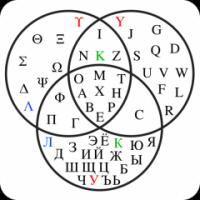Contribuții/Mesaje: 6
Limbă: English
hercxjo (Arată profil) 2 iulie 2013, 05:20:09
EDIT: Do you say this? "Mi bedaŭras, ke mi ne respondis vian leteron."
x1004 (Arată profil) 2 iulie 2013, 06:03:42
hercxjo:How do you say "...in response to..." in Esperanto? For example, "I'm sorry that I did not reply (in response) to your letter."responde al via letero
EDIT: Do you say this? "Mi bedaŭras, ke mi ne respondis vian leteron."
mi bedaŭras ne respondinte al via letero
And your sentence is equally good.
sudanglo (Arată profil) 2 iulie 2013, 12:40:24
Reskribi has two meanings to write again and to write back.
hercxjo (Arată profil) 3 iulie 2013, 05:27:07
matrix (Arată profil) 3 iulie 2013, 06:01:46
hercxjo:How do you say "...in response to..." in Esperanto? For example, "I'm sorry that I did not reply (in response) to your letter."“I'm sorry that I did not reply (in response) to your letter.” → “Pardonu, ke mi ne respondis vian leteron.”, “Pardonu min, ĉar mi ne respondis al via letero.”
EDIT: Do you say this? "Mi bedaŭras, ke mi ne respondis vian leteron."
Pardoni may be used in this meaning as well.
pdenisowski (Arată profil) 3 iulie 2013, 11:25:44
hercxjo:How do you say "...in response to..." in Esperanto? For example, "I'm sorry that I did not reply (in response) to your letter."Well, according to the PIV, Zamenhof himself put it this way : "pardonu, ke mi ĝis nun ne respondis vian leteron"
EDIT: Do you say this? "Mi bedaŭras, ke mi ne respondis vian leteron."
Incidentally, I think there's an important distinction between "mi bedaŭras" and "pardonu (min)".
"Pardonu" indicates that you are seeking forgiveness from someone for something you've done wrong and which affects the person spoken to. It can also be used to introduce polite requests or interruptions. Another Zamenhof example from the PIV : "pardonu, ĉu vi volas alproksimigi al mi la salujon?"
"Mi bedaŭras" (like German bedauern) is more an expression of your regret or sympathy about a situation, and may or may not involve other people or the person spoken to.
Although both can sometimes be translated as "I'm sorry", there are situations in which they are definitely not interchangeable. Some more Zamenhof PIV examples
"mi bedaŭras mian severecon"*
(could also be "pardonu mian severecon" )
"mi bedaŭras, ke vi ne akiris la povon labori"
(definitely could not use "pardonu" here)
Amike,
Paul
*Note that this simply means "I regret my harshness" and is not necessarily an apology or a statement directed towards the recipient of said harshness. "Pardonu mian severecon" is always an apology.



